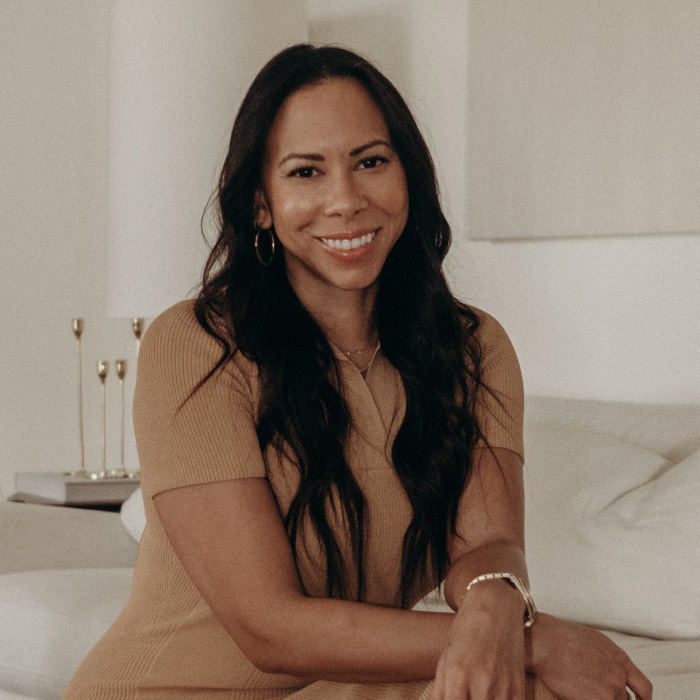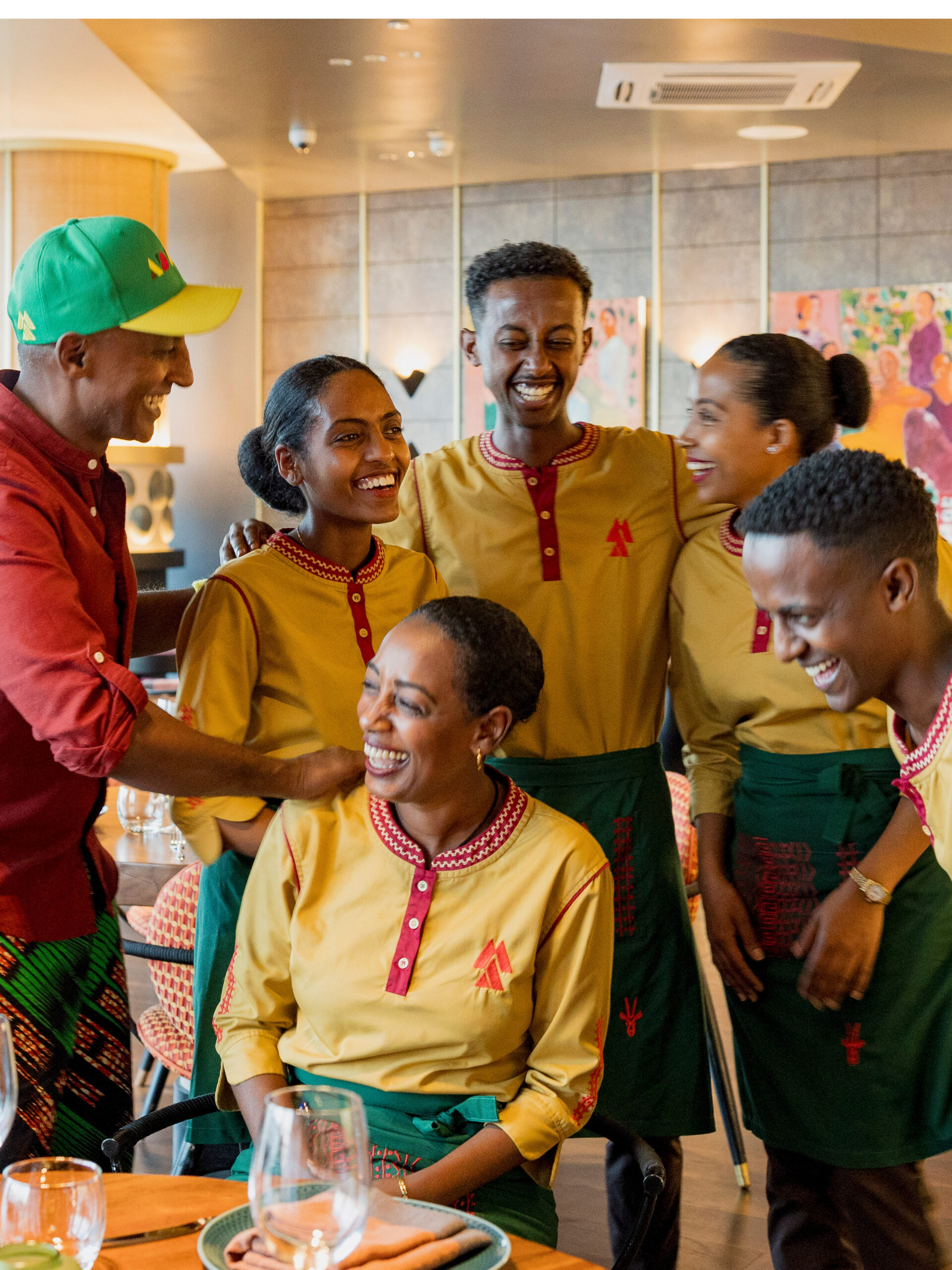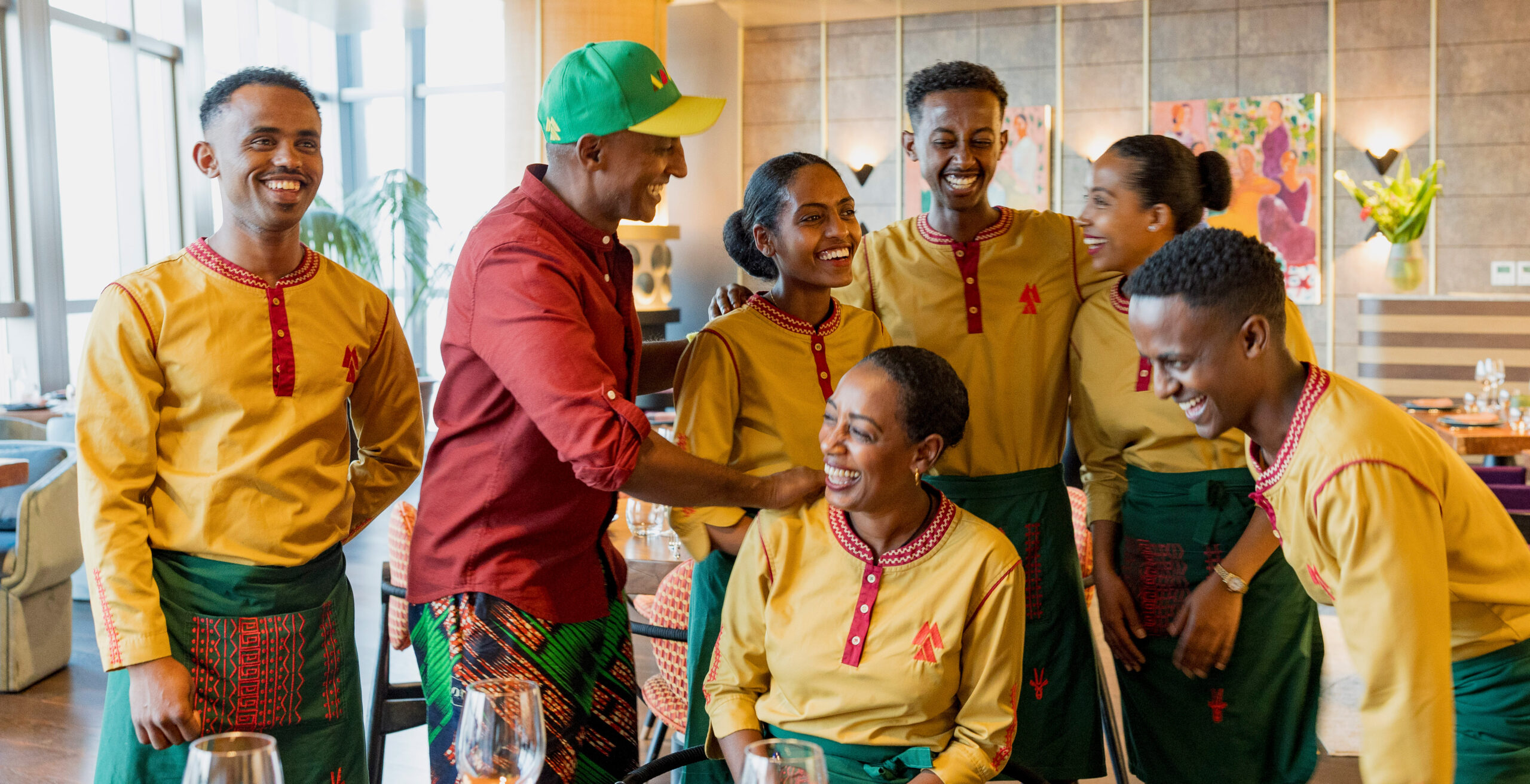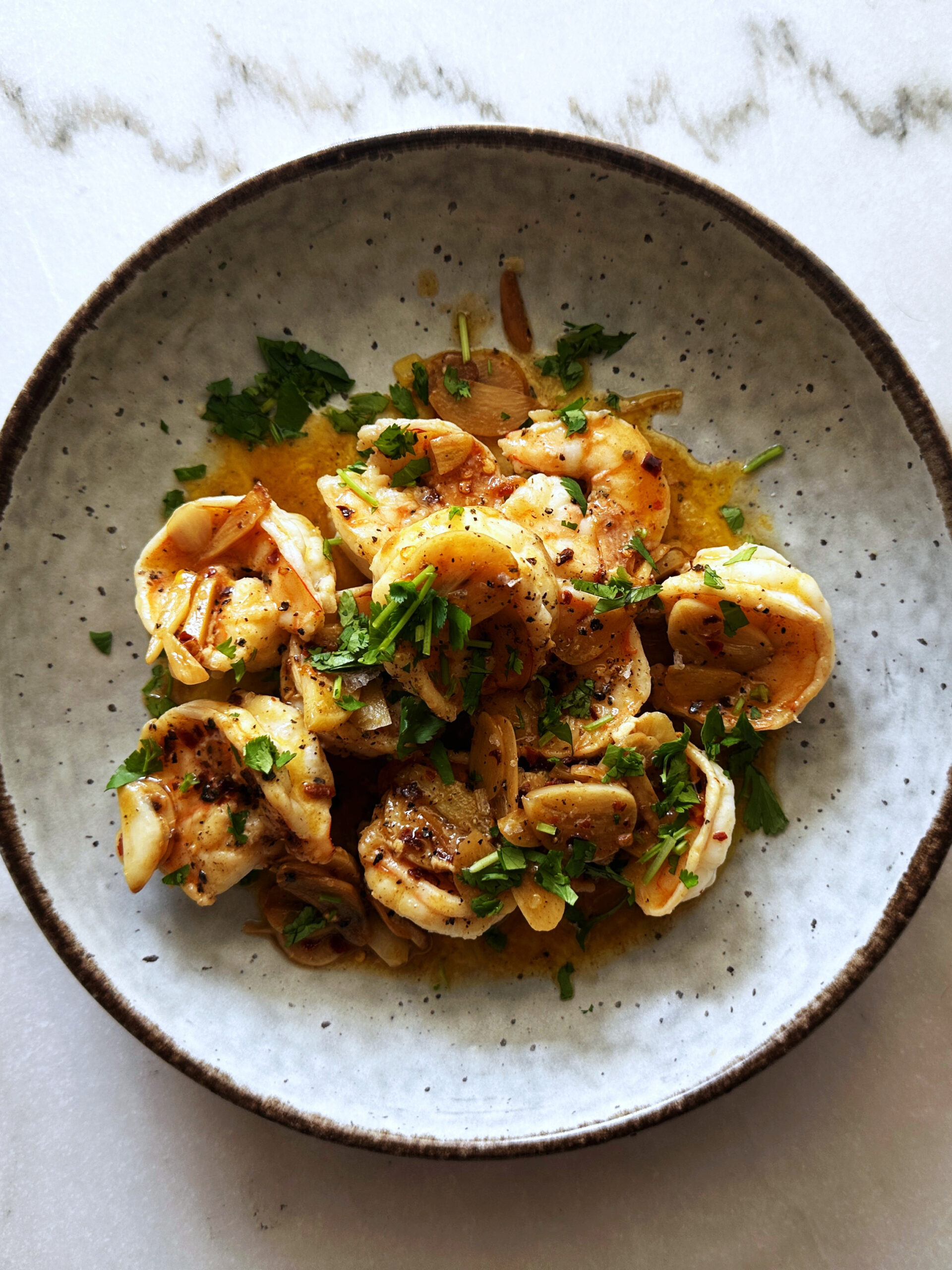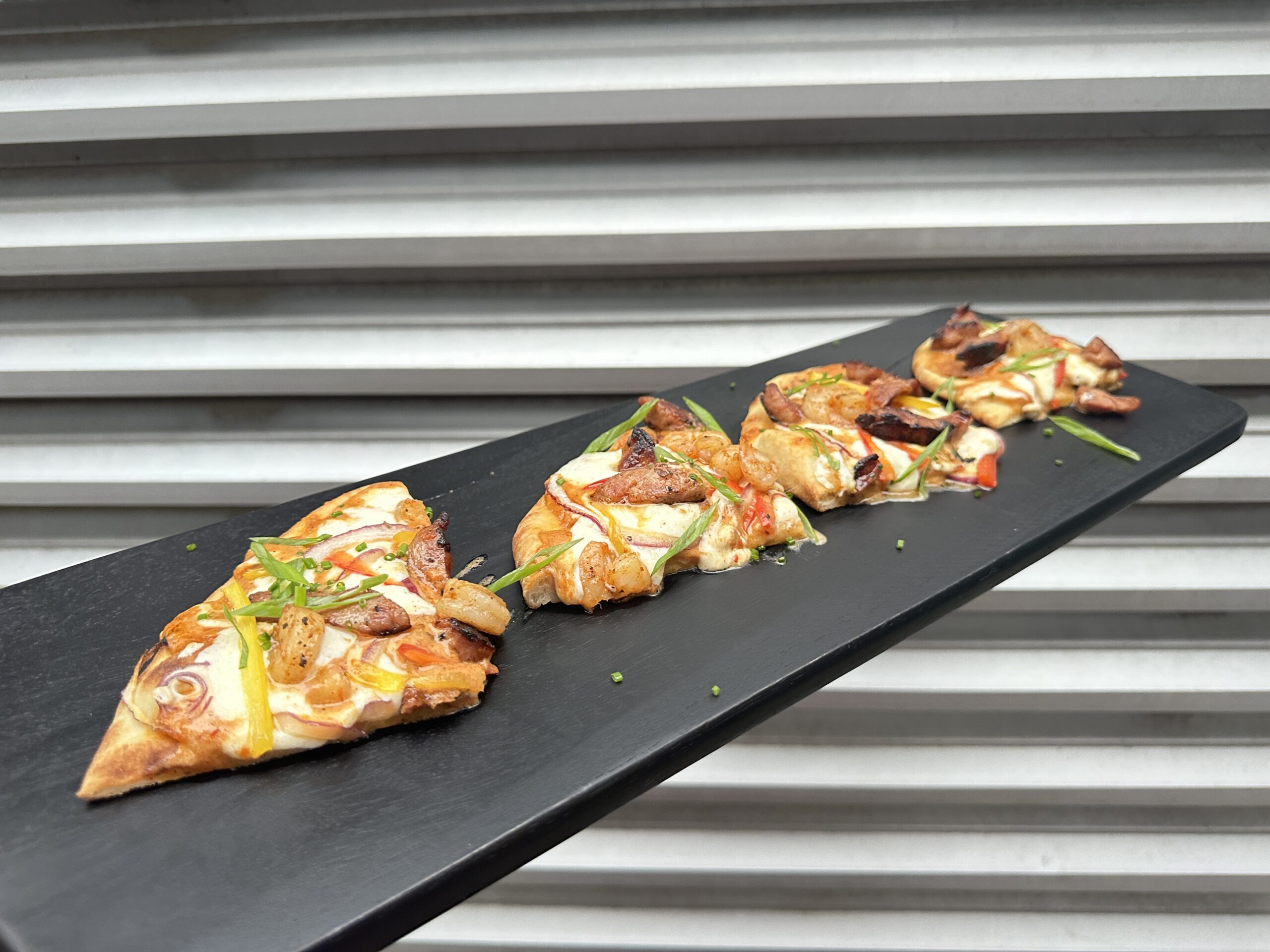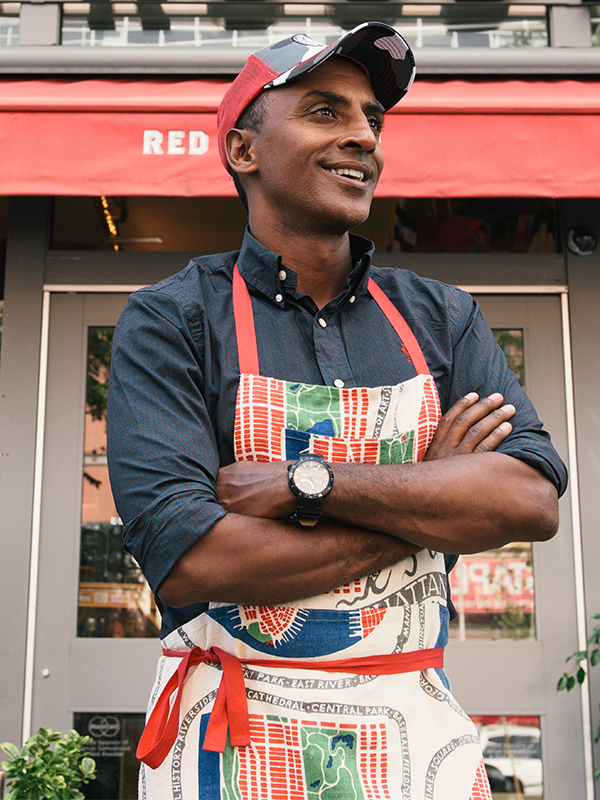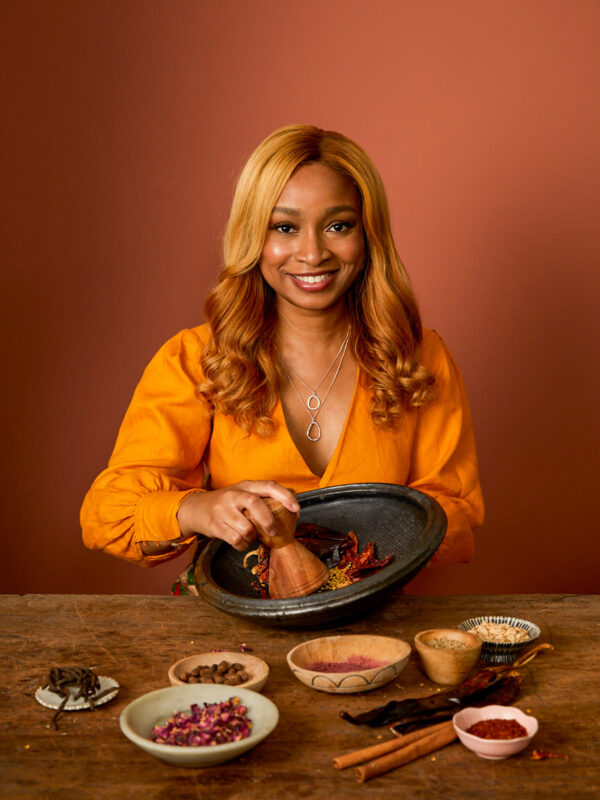The celebrity chef has been honoring his Ethiopian-Swedish roots since the beginning of a decades-long career and portfolio of more than 10 concepts. But Marcus Addis—his first restaurant in Africa—feels momentous. Samuelsson shares the journey that led to this full-circle milestone, part of a growing career anchored in family legacy.
Coming from Ethiopia, and navigating the duality of being Black and being an immigrant, I didn’t always know where to bring in my African side. I started cooking as a Swedish chef. I was also still becoming who I was as a person.
When I met my wife, who is also from Ethiopia, my Ethiopian identity really became more integrated. That was in 2005, around the same time I met my birth father. That’s a huge step for all adopted people. I also met eight brothers and sisters I didn’t know about. This all really linked me to my heritage. I started to have more meaningful engagement with my culture. I started to really understand holidays, not just show up for them. We began cooking Ethiopian food at home on the regular, instead of a couple times a year.
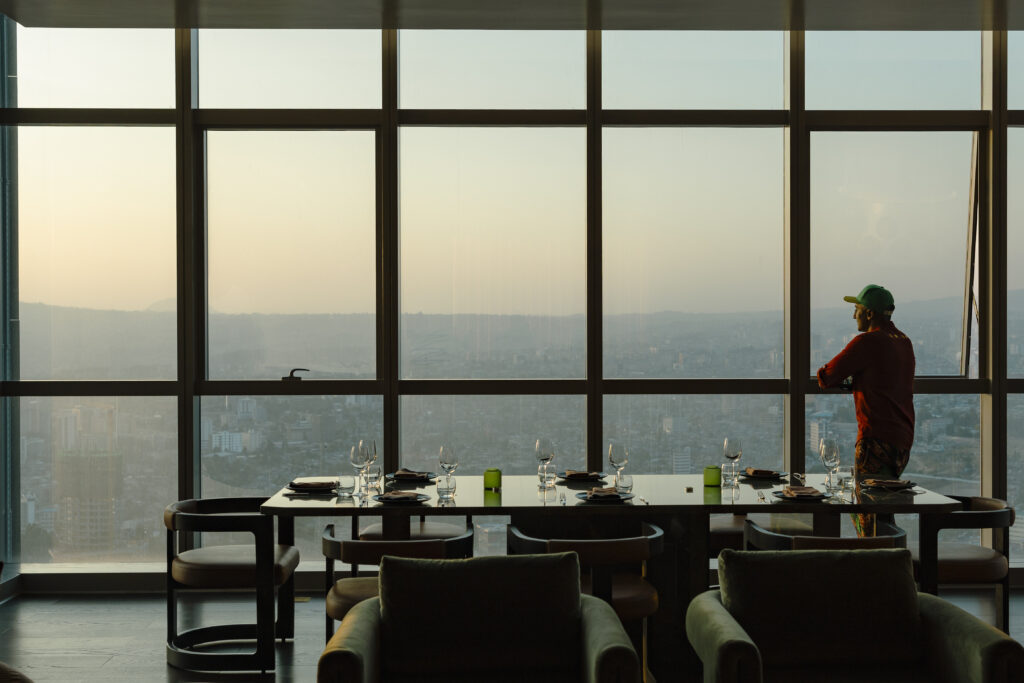
My wife and I knew we wanted to get married in Ethiopia. We also knew we’d do two ceremonies, one in the city and one in the countryside. I was excited about the one in the countryside, because it’s just more unplugged. Everyone shows up. Music is everywhere—not just the band that you hire. It’s a really deep-tissue engagement. It was a two-day party to remember.
After our wedding, I began to feel more confident. I could bring “me” everywhere, and lean into the fact that Black people are not monolithic. I could open Red Rooster in Harlem, paying homage to African American culture with the understanding that our Blackness is diverse, and share that culture through music and storytelling and food. I could tell the story of Black unity, as well as the story of Africa.
Fast forward 15 years and many restaurants later. The pandemic happens. I said to myself, If we’re going to open a new restaurant in New York, it needs to matter. Part of that meant doing more for women of color in the food industry and inspiring the industry to follow this path. I had met [chef Fariyal Abdullahi] before; we had friends in common. She was actually living in Ethiopia when I called her about the executive chef position for what would become Hav & Mar. She moved back to the States for the role. As Black people, we are always looking for opportunity—and it’s rarely carved out for us. I am now in a position where I can help make this happen.
That’s also what I’m doing with Marcus Addis. It was always important to have a restaurant in Ethiopia. It was just about the right opportunity. It’s in the tallest building in East Africa; you can see it from wherever you are in Addis Ababa. And being on the top floor, it’s symbolic of how you can aspire. It’s something that I’m extremely proud of—the fact that we employ over 100 local people and also provide a scholarship opportunity for people to be able to travel, work in our restaurants across America and Europe and learn more about the hospitality industry. That’s important.
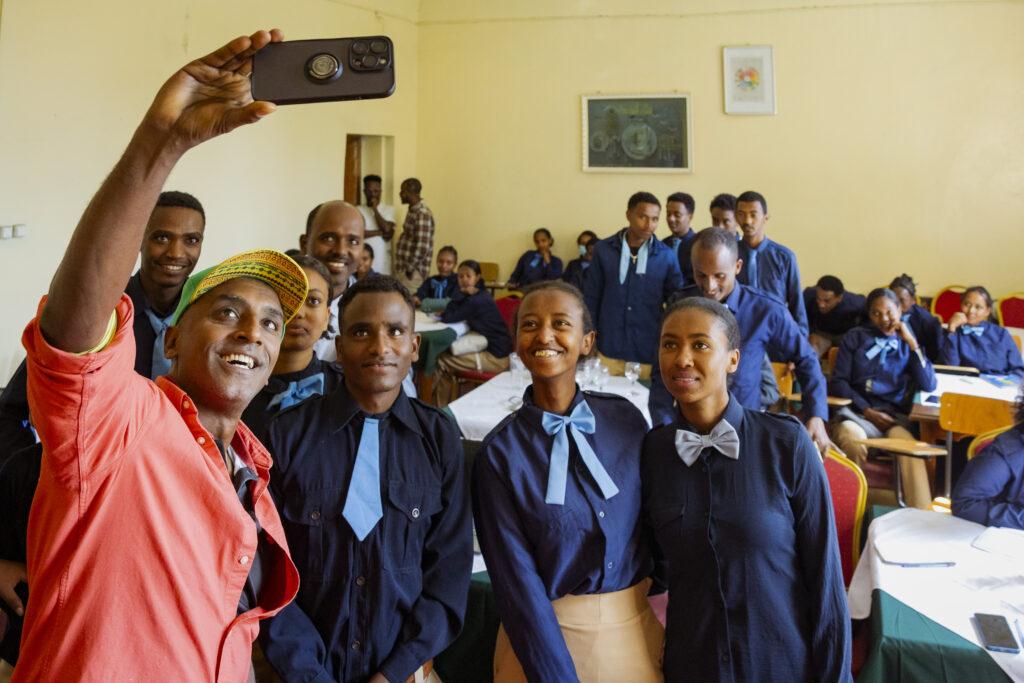
I have three children—a big girl who lives in Europe, a small girl who is two and a boy who is seven—and for me it’s just about inspiring them. Obviously, life is not just a steady road; there will always be obstacles. But it’s about helping our kids navigate through them, regardless of what field they go into. Doesn’t matter. They will have work ethic and they will know how to show gratitude.
I’m always trying to teach that here in Harlem, our home in New York. We love Harlem; it’s a village. We take the train, we’re walking or biking around our neighborhood—even when my son gets crazy ideas about taking an Uber those 20 blocks. We’re learning; we’re becoming.
And we’re getting my youngest over to Ethiopia soon. Grandma wouldn’t have it any other way.
—Marcus Samuelsson as told to Brianne Garrett
This interview was conducted in February 2024 and has been edited and condensed for clarity.
This feature is part of The Village Issue. Read more about the gamut of our most cherished relationships here.



